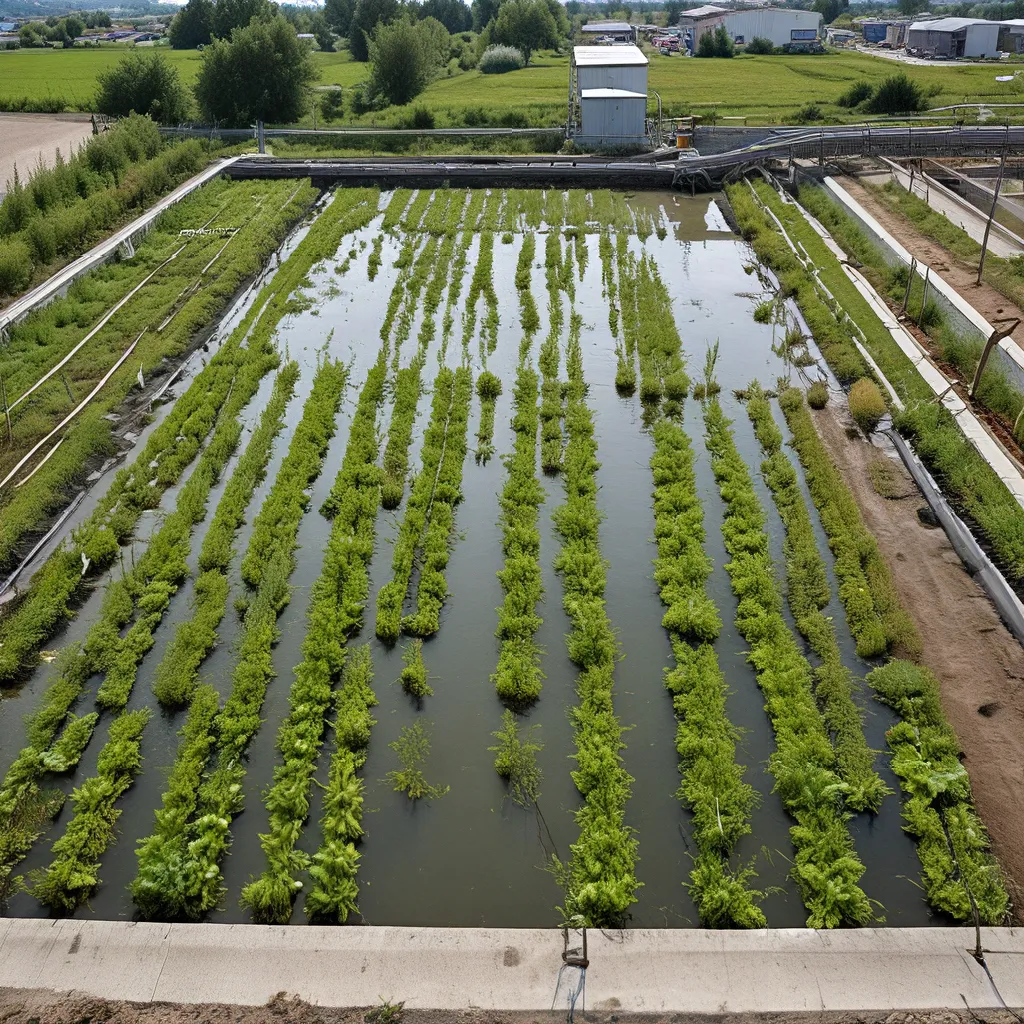
Unlocking the Potential of Closed-Loop Farming
As our global population continues to swell, the need for innovative and sustainable food production practices has become increasingly urgent. Traditional agricultural methods, with their heavy reliance on chemical fertilizers, pesticides, and energy-intensive irrigation, have taken a significant toll on the environment, degrading soil health and contributing to greenhouse gas emissions. But what if there was a way to break this cycle and create a more symbiotic relationship between our waste management systems and our food production?
Enter the concept of “closed-loop agriculture” – a revolutionary approach that holds the promise of a greener, more resilient food system. This innovative strategy focuses on recycling nutrients and water within the agricultural ecosystem, reducing the need for external inputs and minimizing waste. By harnessing the natural cycles of nutrient exchange, closed-loop agriculture aims to optimize resource efficiency and create a more sustainable balance between human activity and the environment.
Closed-loop agriculture is a systems-based approach that emphasizes the circular flow of resources, rather than the traditional linear model of “take, make, waste.” This means that instead of discarding nutrient-rich waste streams from urban areas, they are captured, treated, and reintegrated into the food production process. Wastewater treatment plants, for example, can play a vital role in this closed-loop system by recovering essential nutrients like nitrogen and phosphorus, and transforming them into valuable fertilizers for urban agriculture.
Harnessing the Power of Wastewater
One of the key insights driving the closed-loop agriculture movement is the realization that wastewater treatment can be so much more than just a way to remove contaminants and discharge clean water. By shifting our perspective, we can see wastewater as a treasure trove of nutrients and resources that can be recovered and repurposed for food production.
Recent studies have explored innovative techniques for extracting and concentrating the nutrients in wastewater, such as the use of biochar – a charcoal-like substance that can be engineered to selectively capture and retain specific nutrients. This allows for a more targeted and efficient recycling of essential elements like nitrogen and phosphorus, which are crucial for plant growth and development.
But the benefits of this closed-loop approach extend far beyond just nutrient recovery. By integrating wastewater treatment and urban agriculture, we can also address water scarcity and security concerns. Treated wastewater can be used for irrigation, reducing the strain on freshwater resources and creating a more resilient water supply for food production. This can be particularly valuable in water-stressed regions, where traditional agricultural practices have become increasingly unsustainable.
Cultivating a Greener Future
The potential of closed-loop agriculture to transform our food system is not just theoretical – it is already being put into practice in innovative ways around the world. Community-based initiatives, such as the work being done by the Santa Fe Community College in Colorado, are demonstrating how strategic partnerships and collaboration can help bring these sustainable farming systems to life.
These projects are not only about producing food more efficiently and with less environmental impact; they are also about building stronger, more resilient communities. By integrating urban agriculture with wastewater treatment, we can create localized food production systems that are less vulnerable to the disruptions of global supply chains and better equipped to withstand the challenges of climate change.
Moreover, the benefits of closed-loop agriculture extend far beyond just food security. By closing the nutrient loop, we can also reduce our reliance on energy-intensive fertilizer production, contributing to a greener, more sustainable future. And as we continue to refine and expand these practices, we may even unlock new opportunities for creating circular economies that turn waste into valuable resources.
Embracing the Future of Sustainable Food Production
As we look to the horizon, the future of food production is undoubtedly intertwined with the advancements in wastewater treatment and closed-loop agriculture. Emerging technologies, such as precision irrigation systems, bioponics, and electrochemical oxidation, hold the promise of further optimizing these integrated systems and making them more accessible and scalable.
But the journey towards a more sustainable food system is not without its challenges. Overcoming operational issues, addressing regulatory barriers, and fostering cross-sector collaboration will all be critical to the widespread adoption of closed-loop agriculture. And as with any complex issue, there will likely be ongoing debates and discussions around the best practices and strategies to pursue.
Yet, in the face of these obstacles, I remain optimistic. The drive towards a more environmentally-conscious and resource-efficient food system is too powerful to ignore. By harnessing the power of wastewater treatment and closed-loop agriculture, I believe we can create a future where our cities are not just hubs of human activity, but also thriving urban oases that seamlessly integrate food production with waste management.
So, let us embrace this vision of a greener, more resilient future. Let us work together to close the nutrient loop and unlock the incredible potential of wastewater treatment and urban agriculture. The path to sustainable food production may not be an easy one, but the rewards – for our planet, our communities, and our collective well-being – are truly worth the effort.